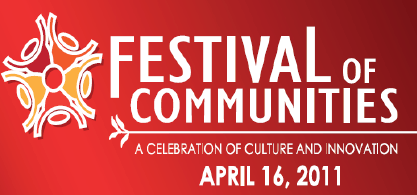Location
University of Nevada, Las Vegas
Start Date
16-4-2011 2:00 PM
End Date
16-4-2011 3:30 PM
Description
Embryonic stem cell research has the potential to regenerate malfunctioning tissues and replace harmful cancer cells. Although it holds the potential to alleviate malicious disabilities and diseases, it raises ethical concerns due to the destruction of a fertilized human embryo. In certain religions (Catholics and Christians), embryonic stem cell research is detested due to the destruction of a human at its early stages of life (embryo). On the other hand, scientists believe that embryonic stem cells can “someday…used to treat human diseases.” (Hansen 879) This analysis on embryonic stem cell research will consider both the supporting and opposing side of the controversy. We will include non-bias point of views by presenting both sides of the argument. Our goal is to inform our audience of the problem by providing sources with information from both sides that allow our audience to understand the ethical controversy that surrounds embryonic stem cell research.
Keywords
Embryonic stem cells—Research – Moral and ethical aspects; Embryonic stem cells—Research—Religious aspects
Disciplines
Bioethics and Medical Ethics | Ethics and Political Philosophy | Health Policy | Philosophy of Science | Religious Thought, Theology and Philosophy of Religion | Science and Technology Policy | Social Welfare
Language
English
Included in
Bioethics and Medical Ethics Commons, Ethics and Political Philosophy Commons, Health Policy Commons, Philosophy of Science Commons, Religious Thought, Theology and Philosophy of Religion Commons, Science and Technology Policy Commons, Social Welfare Commons
Embryonic stem cell research
University of Nevada, Las Vegas
Embryonic stem cell research has the potential to regenerate malfunctioning tissues and replace harmful cancer cells. Although it holds the potential to alleviate malicious disabilities and diseases, it raises ethical concerns due to the destruction of a fertilized human embryo. In certain religions (Catholics and Christians), embryonic stem cell research is detested due to the destruction of a human at its early stages of life (embryo). On the other hand, scientists believe that embryonic stem cells can “someday…used to treat human diseases.” (Hansen 879) This analysis on embryonic stem cell research will consider both the supporting and opposing side of the controversy. We will include non-bias point of views by presenting both sides of the argument. Our goal is to inform our audience of the problem by providing sources with information from both sides that allow our audience to understand the ethical controversy that surrounds embryonic stem cell research.

